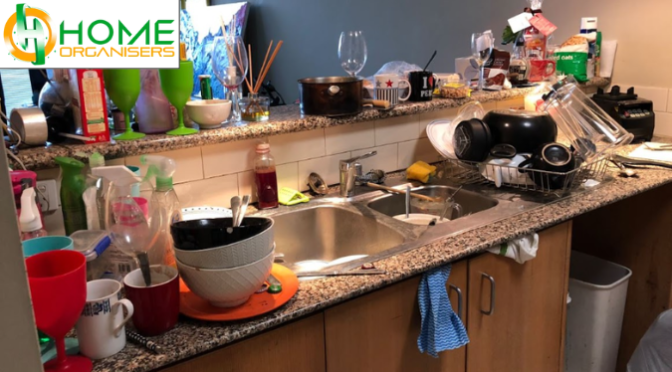Decluttering is frequently viewed as a simple task: sort through items, determine what to keep or discard, and organise the remainder. However, for many, the process is emotionally charged and can be overpowering or even paralysing. Emotional barriers to decluttering frequently impede efforts to let go of items and create a more ordered, harmonious space.
Understanding these emotional barriers to decluttering is critical to overcoming them and moving forward. This article looks at the emotional barriers to decluttering and how professional decluttering services may help people overcome them with understanding, support, and practical solutions.
The Emotional Barriers to Decluttering
Clutter not only takes up physical space in a home, but it also fills mental and emotional space. The relationship between emotions and things is complex, which is why decluttering is about more than just “stuff”—it’s about the feelings associated with those goods.
1. Sentimental Attachment
Many items evoke fond memories. A box of childhood toys, a wedding gown, or a holiday keepsake can elicit intense emotions of nostalgia and sentimentality. Letting go of these artefacts may feel like losing a piece of one’s past or disrespecting the memories associated with them.
It is not commonplace to keep goods that are rarely used or even forgotten because they remind us of a special person, location, or time. For some, this attachment becomes a barrier, even if the goods no longer serve a useful purpose in everyday life.
2. Fear of “What if?”
A common concern while decluttering is, “What if I need this someday?” This “just in case” approach frequently leads to keeping items that haven’t been used in years, such as spare cables, out-of-date instructions, or clothes that no longer fit.
This worry stems from a need for security. Letting go feels hazardous, as if one is sacrificing potential riches. However, this thinking can lead to over-accumulation, resulting in a congested atmosphere that undermines the security being sought.

3. Guilt and Obligation
Guilt is a major factor in clinging onto objects that may not bring joy or utility. Gifts, family relics, or artefacts inherited from loved ones can evoke a sense of duty. Discarding things may feel insulting, even if they are no longer useful in one’s life.
For example, a gifted vase that does not complement the home’s decor or an inherited dining set that takes up too much space can cause internal strife. The guilt associated with removing such objects keeps them around, even if it means sacrificing comfort and functionality.
4. Overwhelm and Decision Fatigue
Clutter accumulates over time, frequently for many years. When faced with sorting through a full house or even a single room, the sheer volume of stuff can be overwhelming. Each item represents a decision, and overwhelm and decision fatigue in decluttering can rapidly set in.
This feeling of overwhelm and decision fatigue in decluttering frequently leads to procrastination. Instead of dealing with the clutter, individuals ignore it, creating the cycle of stress and chaos in the home.
How Decluttering Experts Help Break Down Emotional Barriers
Professional decluttering services and decluttering gurus realise that letting rid of belongings is much more than just cleaning up; it’s about confronting deeply personal emotions. Their responsibilities go beyond physical organisation to include emotional assistance and practical techniques adapted to individual needs. This is how they help:
1. Providing a Fresh Perspective
An expert’s objective viewpoint might help consumers perceive their belongings in a different light. While sentimental attachment or anxiety may distort judgement, specialists gently aid clients in determining each item’s current value or utility.
By asking questions such as, “Does this item bring joy or serve a purpose in your life right now?” Experts assist consumers in making informed decisions without feeling pressured or judged.
2. Developing a Supportive Environment
Decluttering can be an emotional experience, but it does not have to be overwhelming. Professionals provide a safe, nonjudgmental environment in which clients feel supported as they navigate their emotions. They recognise the difficulties while offering reassurance and encouragement throughout the process.

For example, if a client is unable to let go of sentimental items, a professional may advise preserving a curated selection of the most meaningful pieces while discarding the rest. This approach honours memories while making room for new ones.
3. Breaking down tasks into manageable steps.
Overwhelm often results from attempting to accomplish too much at once. Decluttering specialists divide the process into small, achievable chores, making it easier to stay focused and motivated.
Rather than expecting customers to sift through the entire house, they may begin with one drawer or category, such as books or clothing. This strategy increases momentum and reduces overwhelm and decision fatigue in decluttering.
4. Providing Practical Systems for Organisations
Beyond decluttering, specialists assist clients in developing strategies to preserve order and prevent future clutter. They employ a variety of tactics, including labelling storage, designating areas for specific goods, and forming habits for regular tidying.
These solutions allow clients to keep their houses functional and clutter-free long after the decluttering session has ended.
5. Bridge Emotional Gaps
When guilt or obligation becomes a barrier, specialists provide compassionate alternatives. For example, they might propose donating unneeded stuff to organisations so that they might help others in need. This reframes letting go as a form of generosity rather than waste.
Professionals may recommend preserving memories in creative ways, such as capturing photos or building a memory box, for items of high sentimental worth. These ways allow customers to move forward without feeling as if they have lost something significant.
FAQs about Emotional Barriers to Decluttering, and How Do Experts Help
- What is a professional decluttering service?
A professional decluttering service helps you organise and clear out clutter from your home while addressing the emotional barriers that make it difficult to let go of items. Experts provide support, guidance, and practical solutions tailored to your needs. - How do professional organisers handle sentimental items?
Experts respect the emotional value of sentimental items. They help you decide which items to keep, suggest creative ways to preserve memories, and guide you in letting go of what no longer serves you. - Can decluttering professionals help if I feel overwhelmed by the clutter?
Absolutely! Decluttering experts are skilled at breaking the process into small, manageable steps, reducing overwhelm and helping you make progress one task at a time. - What if I feel guilty about discarding certain items?
Professional organisers understand this challenge. They offer compassionate solutions, like donating items to charities or finding ways to repurpose them, turning guilt into a positive action. - How long does it take to declutter my home?
The time required depends on the size of the space, the level of clutter, and your goals. Professionals create a customised plan to ensure the process is efficient and effective. - Can decluttering services help prevent future clutter?
Yes! Professionals don’t just organise; they set up systems to keep your home clutter-free, offering tips and habits to maintain order long-term. - What should I expect during a decluttering session?
You’ll work alongside the organiser to assess and sort your belongings. They provide guidance, encouragement, and solutions to address any emotional or practical challenges. - Do I need to prepare anything before a decluttering session?
No preparation is needed. The organiser will guide you through the entire process, starting right where you are. - Can decluttering services help with specific areas, like wardrobes or garages?
Yes, professionals can focus on specific areas or tackle the entire home, depending on your priorities and needs. - How do I get started with a professional decluttering service?
Getting started is easy! Contact a decluttering expert by calling 03 8583 9103, emailing nancy@homeorganisers.com.au, or visiting homeorganisers.com.au to discuss your needs and book a session.
Ready to transform your space and lift the emotional weight of clutter? Call 03 8583 9103, email nancy@homeorganisers.com.au, or visit homeorganisers.com.au today to take the first step towards a more organised, stress-free home!



